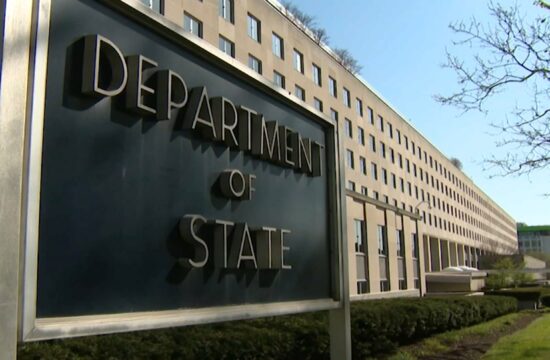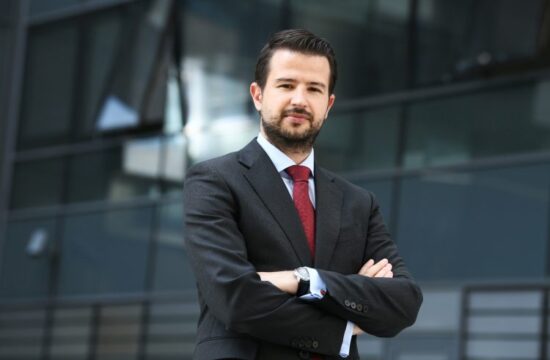
Johann Sattler, the ambassador of the European Union to Bosnia and Herzegovina, conveyed a message on the World Press Freedom Day, arguing that the state of the media is usually a mirror that reflects the society and warning about some major issues in Bosnia and Herzegovina that concern the freedom of media. On its path to EU, the country will need to adopt the EU standards concerning media transparency, independence and funding of public service media as well as the media ownership and independence of editors, he said. Pročitaj više
“Across the world, this essential profession, which has the responsibility of holding those with power to account, is under severe pressure. People have become accustomed to receiving news as soon as it breaks, while in parallel having become unaccustomed to paying for it. The result is felt in newsrooms everywhere – incredible time pressure, a shift towards cheap to source opinion over expensively researched news, and slashed budgets. It is no wonder that every year that many principled journalists choose to leave their jobs in despair at the current state of journalism. Those who doggedly remain true to their calling have my full admiration and respect,” said Sattler in the opening of the blog post he published on this occasion.
He stressed that the countries with strong rule of law, low corruption, and transparent and accountable governance also do well in international media freedom rankings, noting that EU member states have relatively “vibrant and independent media sectors,” and recalling that European Commission President Ursula von der Leyen announced in her State of the Union address in 2021, it is essential to do more to safeguard media independence and pluralism.
Sattler explained that the new ground-breaking European Media Freedom Act, which is undergoing legislative procedure right now, will provide new safeguards against political interference in editorial decisions and against surveillance. It will put a focus on the independence and stable funding of public service media as well as on the transparency of media ownership and of the allocation of state advertising. It also sets out measures to protect the independence of editors and disclose conflicts of interest. The Act will also address the issue of media concentrations.
“On its path to the EU, these are the standards that Bosnia and Herzegovina will need to adopt, including increasing transparency about media ownership, transparency of financing of media, as well as introducing a law on electronic media. Moreover, the financial sustainability of public broadcasting, its independence and quality will need to be enhanced. Strengthening freedom of expression and freedom of the media is one of the 14 key priorities that BiH needs to address before accession negotiations can even open. Regrettably, the picture for media freedom across BiH remains challenging,” said the ambassador.
Reviewing the current state of media in Bosnia and Herzegovina he mentioned some major issues, including recent law changes adopted in one of its two administrative unites, Republika Srpska (RS) entity, and its consequences.
“The decision of the RS leadership to criminalise defamation represents a serious step back for freedom of expression and freedom of the media. Proponents of this law argue that EU criticism of this proposal is hypocritical given that defamation is criminalised in the majority of EU member states. To this, I would respond firstly that criminalised defamation is generally considered outdated, with experts in the field and international organisations recommending decriminalisation of defamation everywhere. There are better legislative methods for dealing with the problem of false allegations,” Sattler stressed.
He also argued that the current context for media freedom in the RS is one of “serious pressure on the media,” recalling that senior RS politicians have threatened or insulted journalists and media, critical journalists have had their property damaged, journalists have been beaten up and law enforcement agencies have put undue pressure to reveal journalistic sources.
“This an environment that is hostile to media freedom. Weaknesses in the rule of law moreover mean that journalists do not have the institutional and legal protections they need. This is the context within which the proposals to criminalise defamation are taking place,” he underlined.
Similar to this entity, the situation in Bosnia's other part, Federation BiH, also raises concerns in terms of threats and pressure on media, according to the ambassador.
“There are a number of high-profile cases in the Federation of politicians and institutions using their power to attack and put pressure on journalists. Insults, threats and humiliation of journalists incite members of the public to take matters into their own hands – at the protests outside the FBiH Parliament building last Friday, there were unacceptable assaults on journalists. We expect that the newly formed Federation government will take steps to strengthen freedom of expression and media freedom,” he noted.
According to him, the lack of the institutional follow up to reports of threats or attacks on journalists across the country is worrying and reported cases rarely result in convictions.
“Freedom of expression and freedom of the media are cornerstones of any free society. BiH needs greater freedoms, and progress on the EU path. Let’s leave the threats, intimidation, pressure on the media and shrinking civic space as something to peacefully read about in dystopian fiction, rather than as the everyday lived reality of too many journalists in BiH,” he concluded.





Kakvo je tvoje mišljenje o ovome?
Budi prvi koji će ostaviti komentar!